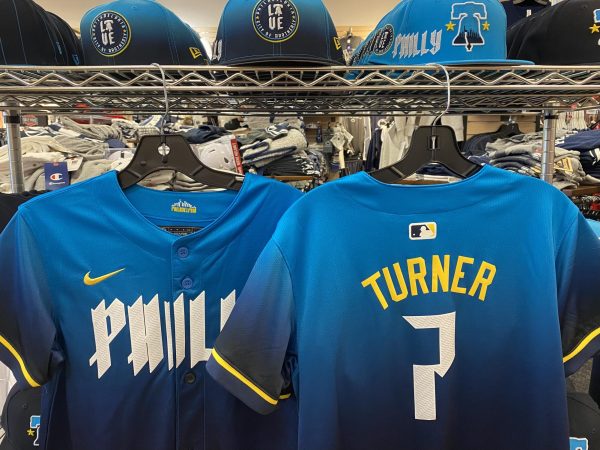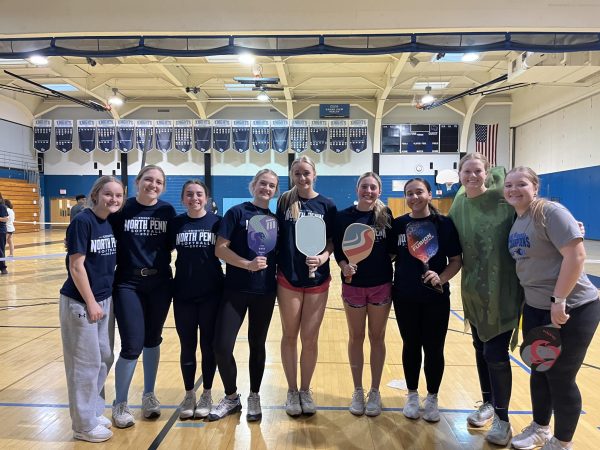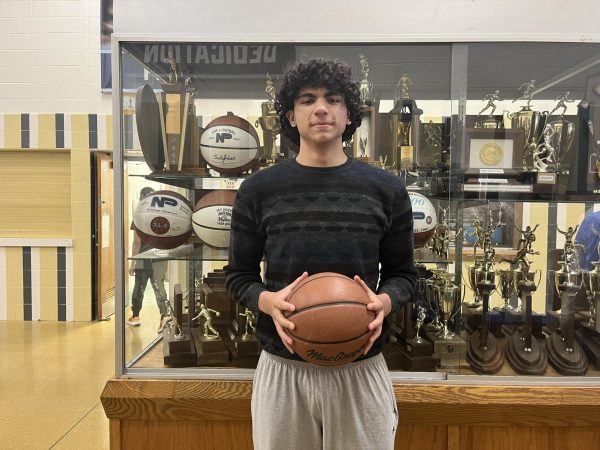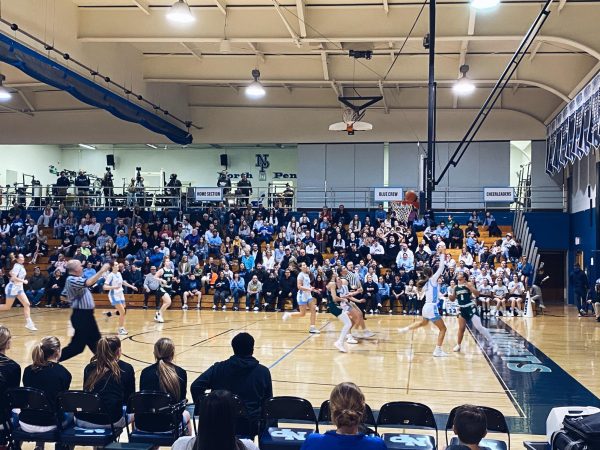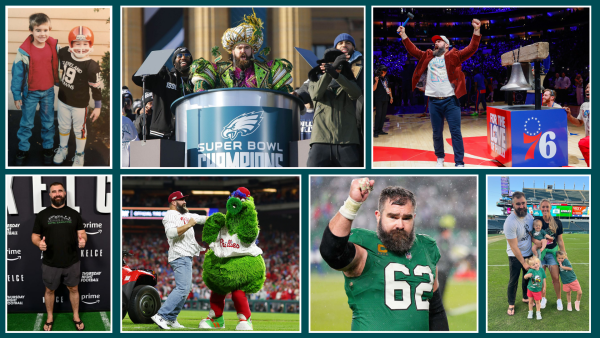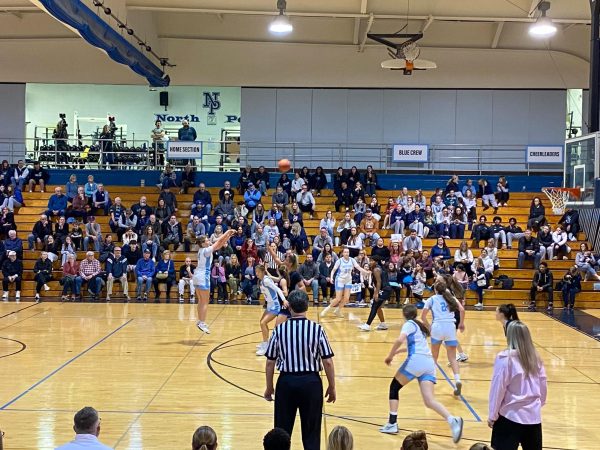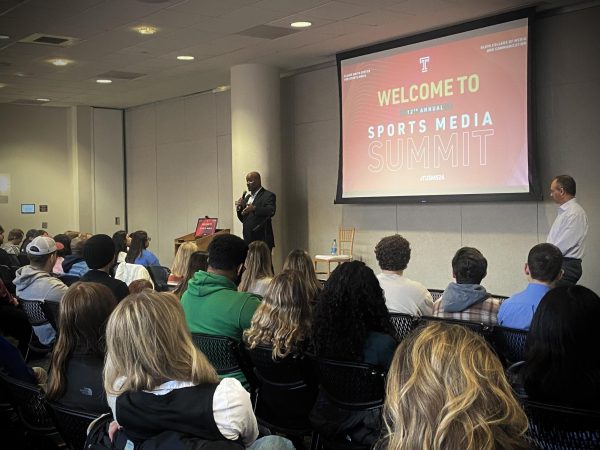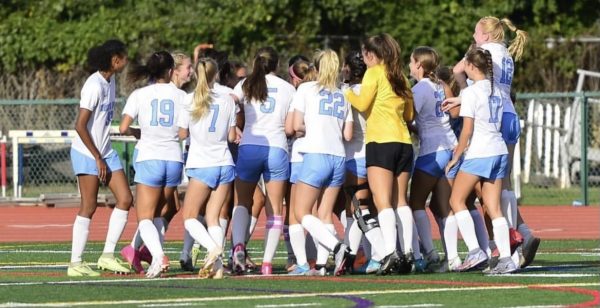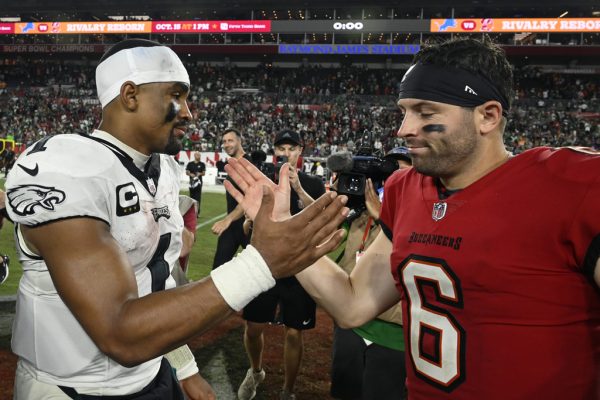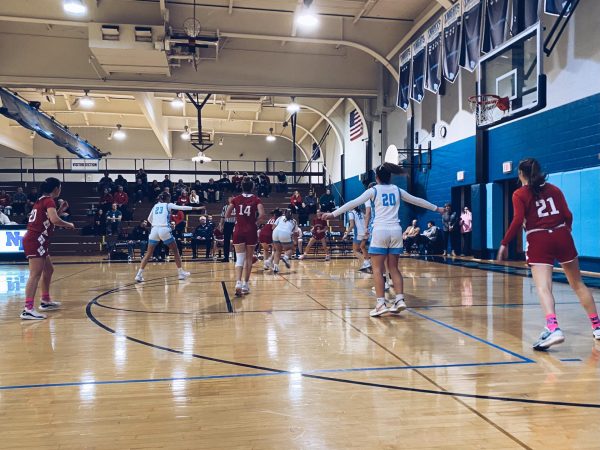One on One – Curtis Martin: Running Through Life
Knight Crier’s Dante Watson talks one-on-one with NFL Hall of Famer Curtis Martin
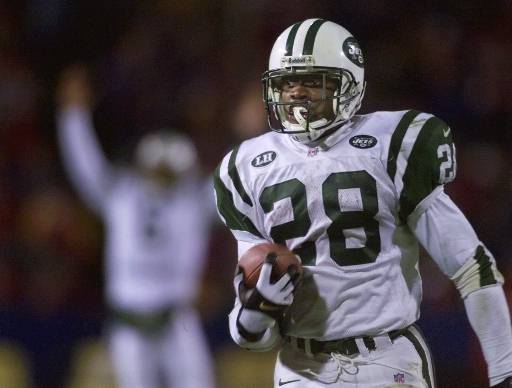
Photo ciourtesy of AP Images/ Charles Krupa
New York Jets running back Curtis Martin scrambles to the end zone to score against the New England Patriots during the second quarter of their AFC East Conference game at Foxboro Stadium in Foxboro, Mass., Monday Nov. 15, 1999. In the distant background is Jets quarterback Ray Lucas. Even though his team has plummeted to the bottom of its division, Curtis Martin has been surging toward the top of the NFL rushing charts. (AP Photo/Charles Krupa)
Over the holiday break I had the opportunity to sit down and talk on the phone with NFL Hall of Fame running back Curtis Martin. Though I don’t brag or boast about it, Curtis Martin is a very dear friend of my mother, Rhonda, and their relationship is a testament of what a true friendship means, as well as the value of it. Even though he has accomplished more than the average person has in just 11 seasons of playing professional football, he still remains a “humble and down to earth” guy. He has always been a blessing to my mom, and my family and I personally respect and admire how he has been a model of excellence.
Despite growing up in the rough neighborhoods in his hometown of Pittsburgh, Curtis Martin proved that it’s not where you come from, rather where you’re going. He is one of the NFL greats at the running back position (4th all time in rushing yards), and has cemented his name in NFL folklore with an induction into the Pro Football Hall of Fame in 2012. He also is the oldest running back to win a rushing title at the age of 31. The consistent success he had in the league, by rushing for 1,000 yards in his first 10 of 11 seasons in the NFL, translates to the constant success he has with his life after football with his Curtis Martin Job Foundation and many other businesses he is associated with.
How did it feel to get drafted?
Curtis Martin: I was kind of torn, because there was a part of me that didn’t really want to play football, but I knew that football was the way out of the neighborhood that I grew up in. Growing up in such a narrow place, football was the best and, I feel, most immediate way for me to get out of that environment. Also, to move my family out of that environment, I am very appreciative for football, because I really feel as though it saved my life at the end of the day. So getting drafted, for me, I was happy and excited about getting drafted for more reasons than just playing football.
What was it like playing in the NFL?
Curtis Martin: What I liked most about playing in the NFL is what it taught me. I believe football is the ultimate game of life, because you have the accolades with an entire team of people, and you all have to be on one page. You all have to trust one another. It doesn’t matter the color, the race the size, or whatever, everyone has to put their differences aside, and come together for one purpose. I think what I enjoyed most about football was the camaraderie, and just the team aspect, more importantly the lessons that I learned from it. I really appreciate the lessons I learned from football, it was almost like a third parent to me.
You got drafted by the Patriots; how did it feel leaving the team to go play for the Jets?
Curtis Martin: Well at first, it was something I didn’t think I would like. I felt so loyal to the team that drafted me, and I was so appreciative that they gave me the chance to play in the NFL. However, because it was the same head coach [Bill Parcells] that drafted me with the Patriots and then went to coach for the Jets, it made the transition much easier for me.
How do you think Bill Parcells impacted you on the field and off?
Curtis Martin: He not only impacted my career, but he impacted my life. If it wasn’t for Bill Parcells, my career would have been a fraction of what it actually was. He was the one who taught me the many principles of life. He taught me how to be a professional. One of the things I appreciated about him was that he was always concerned about the man that you were, more so than the player that you were. He took a special interest in me, even to this day we sit together and discuss things, and he’s become a father figure to me. He was such a tough coach, that it took tough players to play for him. All the guys who wanted to be the best, who wanted to worked as hard as they could work, he maximized their careers by not taking any shortcuts. All of us loved Parcells, except for the guys who wanted to take shortcuts, and compromise their training. Those guys turned out to not like Parcells. He [Parcells] was so adamant about the details; he required your best from you, and if you weren’t giving your best then you probably didn’t like him, because he stayed on you.
Did you have a favorite teammate who you played with?
Curtis Martin: I don’t know that I had a favorite, but I have a lot of guys that I am still close to. Most of the fullbacks that blocked for me like Sam Gash, Richie Anderson, and Jerald Sowell, I still have a good relationship with them. Same with the quarterbacks,- Vinny Testaverde, Chad Pennington, and Drew Bledsoe. I’m still cool with most of the guys I played with.
Was there any particular special moment that you’ve had when you were playing?
Curtis Martin: One of the first special moments that stands out is going back home to Pittsburgh, where I’m from, and playing the Steelers for the first time in my rookie year. To me that was one of the most exciting games I played in. I also don’t know if I’ve ever been that nervous for a game before. I had one of my best games, in my opinion, just from a running standpoint. I didn’t have the most yards, or anything. I think that if I was able to feel that way, in every game that I ever played in, my career would have been a lot better. I was just in a zone when I played the Pittsburgh Steelers.
How did you feel when you found out you were getting inducted into the Hall of Fame?
Curtis Martin: The first feeling I felt was humble. It really humbled me. I wasn’t the biggest football fan, but most of the guys in the Hall of Fame I knew about. To just be mentioned in the same breath as a lot of those guys, it was something that I never even planned on, or really thought about, because I didn’t really know I could play football seriously until my senior year in high school. Every time I moved up a level, like going into college, I always questioned if I would even be good enough to play at that level, and then when I went into the pros, I feel like I had the ability, I just didn’t know how far it would go. So to end up in the Hall of Fame, which is the ultimate individual goal, but I don’t see it as an individual goal because I realized how many people it took to help me get there, but to get INDUCTED there was just one of the most humbling experiences that have I ever had. Sharing that moment with my mom, I think that’s what made it that much more special. I grew up pretty hard, and I watched my mother go through so many different things to sacrifice so much just to keep clothes on my back and make sure I was doing well in school. The Hall of Fame was, just to share that with her, kind of a surreal moment, because it was almost like looking at her realizing how far I had come, as far as football was concerned, from that senior year when I stepped out on the field in high school.
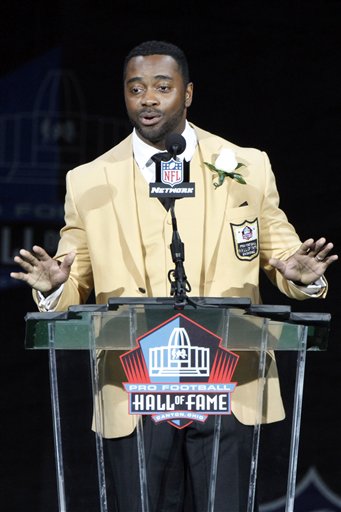
Former NFL player Curtis Martin gestures during his induction speech at the Pro Football Hall of Fame, Saturday, Aug. 4, 2012, in Canton, Ohio. (AP Photo/Tom E. Puskar)
What were the best lessons you could take from football?
Curtis Martin: The way I learned to lead as a captain on the football team. The determination and the perseverance when playing with pain. The focus you need to play at a high level. The commitment that you have to have to keep that edge so that you are always at your best. All of those qualities helped me, not only with my life after football, but also my business and most things I do. It’s almost as if I’m still playing football, but in a different arena.
If you did not play football what would you have been doing with your life?
Curtis Martin: Well I’ve always liked business, and I believe I’d be doing what I’m doing now. I’m involved with so many businesses that I either own or I own part of. That’s what I really enjoy doing. Business as well as charity. During my entire career, I took 12% to 20% of every check that I ever made and I put it aside to charity. Now I do the same thing, but I do it at 20% to 25%.
How has life been for you after football?
Curtis Martin: It’s fortunate for me that I don’t really have a whole lot of free time. My business is keeping busy. I feel just as busy as when I played, but it’s also really different to have positioned myself to be my own boss. So I can create my own schedule and I can do things that work around me, and I don’t necessarily have to punch a clock, and that is a great advantage, but that came with a lot of hard work. For me the transition was pretty easy and smooth, because I haven’t been quiet about it, but football wasn’t my first love. That wasn’t what I really wanted to do, I just had the ability to do it. So in doing it, I made sure that I was always thinking about when that was over. So I was very prepared when my career ended.
Do you have any advice for young athletes making the transition from high school sports to college, and even hopefully from college to the pros?
Curtis Martin: I think that to each level that you go up to, it requires a different level of commitment and a different level of discipline. For me, it was always my goal to just be the hardest worker on the team. I knew that I wasn’t the most talented, I wasn’t the biggest, strongest, fastest, or whatever it may have been, but I knew that no one could outwork me. That was one thing that I felt anyone could do. Everyone has the ability to work hard no matter how talented you are or are not. So it was always my goal to outwork everyone, and to finish my career with a good name. I think that some players underestimate how important it is to have a good reputation and a good name in college, as well as, even in high school, and especially in the professional league. Your name at the end of the day will take you further than everything that you do, accomplish, and gain while you’re in the NFL. You have to consider your career is only going to be, on average, 3 years, but most of the time, at most, 10 years. You’re still having whole lot of life left and you don’t want to have created a bad name that is going to follow you throughout the rest of your life. So my advice to kids, as well as professional athletes, would be to just do things the best that you can and to do them as right as you can. Don’t take shortcuts. Be the hardest worker, that doesn’t take talent, that takes determination and effort. Don’t compromise in your training, or with your character. Don’t compromise your character or your training.


